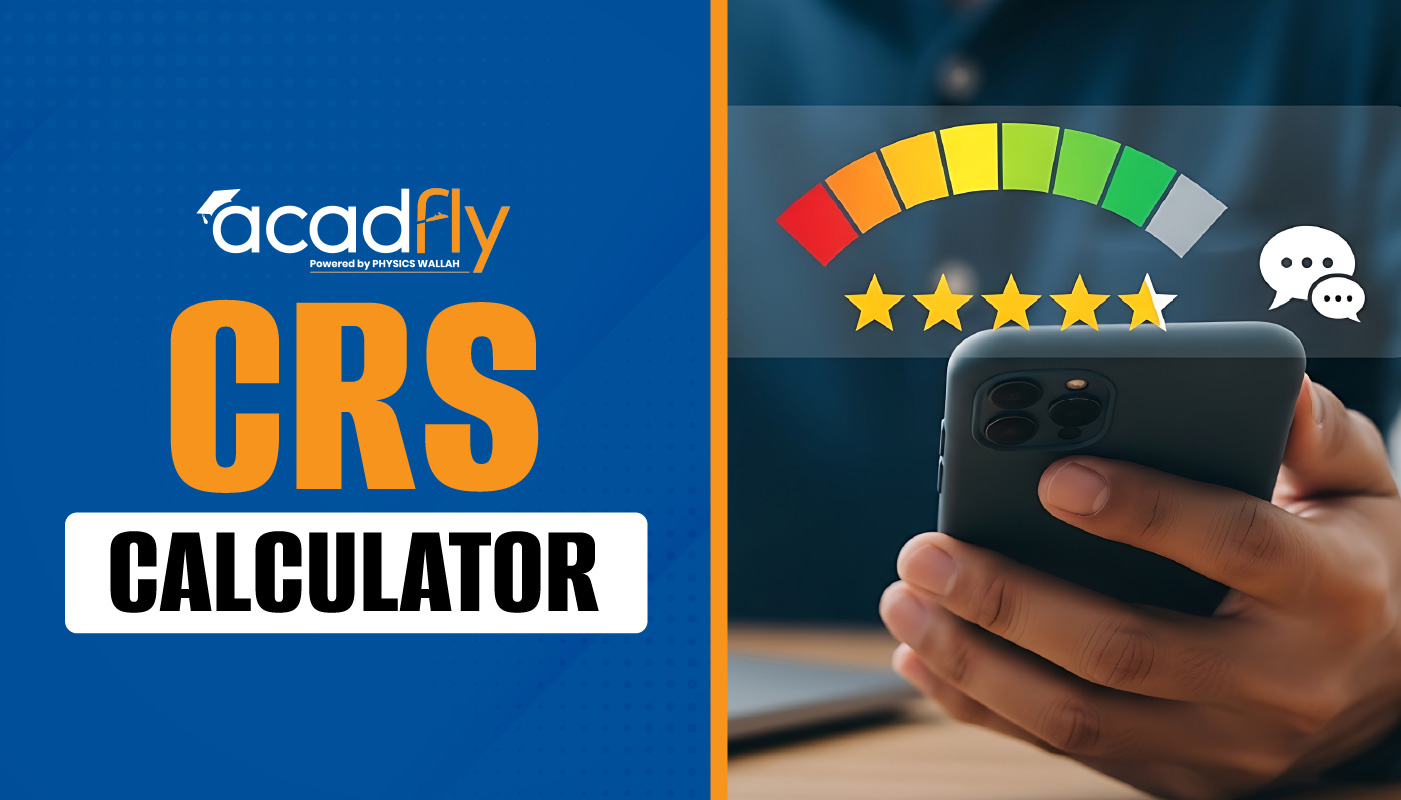IELTS Band Score Calculator is important for candidates who prepare for the International English Language Testing System (IELTS). This is one of the most recognised English language proficiency tests worldwide, IELTS is used by universities, immigration authorities, and professional bodies to assess a candidate’s English language ability. Knowing how your IELTS band scores are calculated can significantly improve your preparation strategy and set realistic goals.
In the section below, candidates can explore how each section is scored, what contributes to the IELTS overall band score, and how the IELTS Band Score Calculator works.
Overview of IELTS Band Scoring System
IELTS scores are assessed using a 9-band scale, with each band representing a specific level of English proficiency. The scoring system is designed to provide a detailed assessment of a candidate's abilities in each language skill. Half-band scores, like 6.5 or 7.5, provide finer distinctions for each section: Listening, Reading, Writing, and Speaking. Check the points below for band levels:
-
Band 9: Expert user
-
Band 8: Very good user
-
Band 7: Good user
-
Band 6: Competent user
-
Band 5: Modest user
-
Band 4: Limited user
-
Band 3: Extremely limited user
-
Band 2: Intermittent user
-
Band 1: Non-user
-
Band 0: Did not attempt the test
How the IELTS Listening Band Score is Calculated
IELTS Listening test includes 40 questions. Each correct answer is awarded one mark.The raw scores are adjusted based on a specific conversion chart for IELTS band scores.The conversion varies slightly between test versions, but a general guide is as follows:
-
Band 9 – 39-40 correct answers
-
Band 8.5 – 37-38
-
Band 8.0 – 35-36
-
Band 7.5 – 32-34
-
Band 7.0 – 30-31
-
Band 6.5 – 26-29
-
Band 6.0 – 23-25
-
Band 5.5 – 18-22
-
Band 5.0 – 16-17
The IELTS listening band score reflects a candidate's ability to understand spoken English in various contexts, including speeches and conversations.
IELTS Reading Band Score Calculation
Like the Listening test, the IELTS Reading test contains 40 questions. However, The scoring criteria vary between the Academic and General Training modules.
Academic Reading
-
Band 9: 39–40 correct answers
-
Band 8.5: 37–38 correct answers
-
Band 8: 35–36 correct answers
-
Band 7.5: 32–34 correct answers
-
Band 7: 30–31 correct answers
-
Band 6.5: 26–29 correct answers
-
Band 6: 23–25 correct answers
-
Band 5.5: 18–22 correct answers
-
Band 5: 16–17 correct answers
General Training Reading
The General Training version features slightly simpler texts, requiring more correct answers to achieve the same band score.
-
Band 9 – 40
-
Band 8.5 – 39
-
Band 8.0 – 37-38
-
Band 7.5 – 36
-
Band 7.0 – 34-35
The IELTS reading band score assesses the ability to understand factual and theoretic information, recognise writers’ opinions, and manage detailed reading tasks.
IELTS Writing Band Score Calculation
The IELTS Writing test includes two tasks: Task 1 and Task 2. Each task is evaluated based on four criteria:
-
Task Achievement/Response: How well the task is addressed.
-
Clarity and Flow of Ideas: The logical flow and organisation of ideas.
-
Vocabulary Use: The range and accuracy of vocabulary.
-
Grammatical Range and Accuracy: It refers to the variety and correctness of grammatical structures.
Each measure is scored from 0 to 9, and the average of the four scores sets the Writing band score. For example, if Task 1 got a score of 7 and Task 2 got a score of 6.5, the average score would be 6.75, which is rounded to Band 7.
This method certifies an overall review of a candidate's writing abilities, considering both content and language use.
How the IELTS Speaking Band Score is Calculated
The Speaking test is conducted in a face-to-face interview and imposed across four criteria:
-
Fluency and Coherence: The ability to speak smoothly and logically.
-
Lexical Resource: The range and accuracy of vocabulary.
-
Grammatical Range and Accuracy: The variety and correctness of grammatical structures.
-
Pronunciation: The clarity and intelligibility of speech.
Just like the writing test, each criteria is scored individually on a scale from 0 to 9. The average of these four scores makes the final IELTS speaking band score.
How the IELTS Speaking Band Score is Calculated
The overall IELTS band score is the average of the four individual section scores which includes Listening, Reading, Writing, and Speaking. This average is then rounded to the nearest whole or half band, following specific rounding rules.
-
If the average ends in .25, the overall band score is rounded up to the next half band.
-
If the average score ends in .75, the overall band score is rounded up to the next whole band.
-
If the average ends in .5 or lower, the overall band score is rounded down to the nearest half or whole band.
For example:
-
Listening: 6.5
-
Reading: 6.5
-
Writing: 5.0
-
Speaking: 7.0
So the Average = (6.5 + 6.5 + 5.0 + 7.0) / 4 = 6.0 overall band score
The IELTS overall band score calculator provides a balanced view of overall English proficiency, offering a reliable score that reflects combined performance.
Importance of Understanding IELTS Band Scores
Understanding how IELTS band scores are determined is important for several reasons. Given below are some reasons for which understanding of IELTS band scores is important:
-
Target Setting: Candidates can set realistic goals by knowing the scores required for their desired institutions or visa applications.
-
Preparation Focus: Identifying strengths and weaknesses in specific skills allows for targeted preparation.
-
Score Interpretation: Understanding the scoring system is important for accurately interpreting results and making informed decisions.
Using an IELTS Band Score Calculator Online
There are many educational websites and IELTS preparation platforms that provide IELTS band score calculators. These tools assume the official conversion of raw scores to band scores for the Listening and Reading sections and provide estimations for overall band scores.
Candidates can input the number of correct answers or individual band estimates to quickly evaluate possible outcomes. Given below are some website of IELTS Band Score Calculators Online where candidates can estimate their scores effectively:
-
IELTS.org Band Score Converter
-
British Council IELTS Score Calculator
-
IDP IELTS Band Score Calculator
-
IELTS Liz Score Calculator
-
IELTS Material Band Score Calculator
IELTS Band Score Calculator is more than a technical conversion tool. It is a way to understand the structure of English proficiency as recognised by institutions worldwide. From the Listening and Reading sections to the more complex Writing and Speaking section, each part is put in a standardised, fair, and transparent way.
By understanding how the IELTS listening band score, IELTS reading band score, IELTS writing band score calculator, and IELTS overall band score calculator work together, candidates can approach the test with clarity and confidence. Proper awareness of scoring not only helps in preparation but also enables candidates to achieve their goals whether academic, professional, or personal.
Frequently Asked Questions
What is the IELTS Band Score Calculator and why is it important?
How are IELTS scores measured?
What do different IELTS band scores mean?
How is the overall IELTS Band Score calculated?
Are there any online tools to check IELTS band scores?









